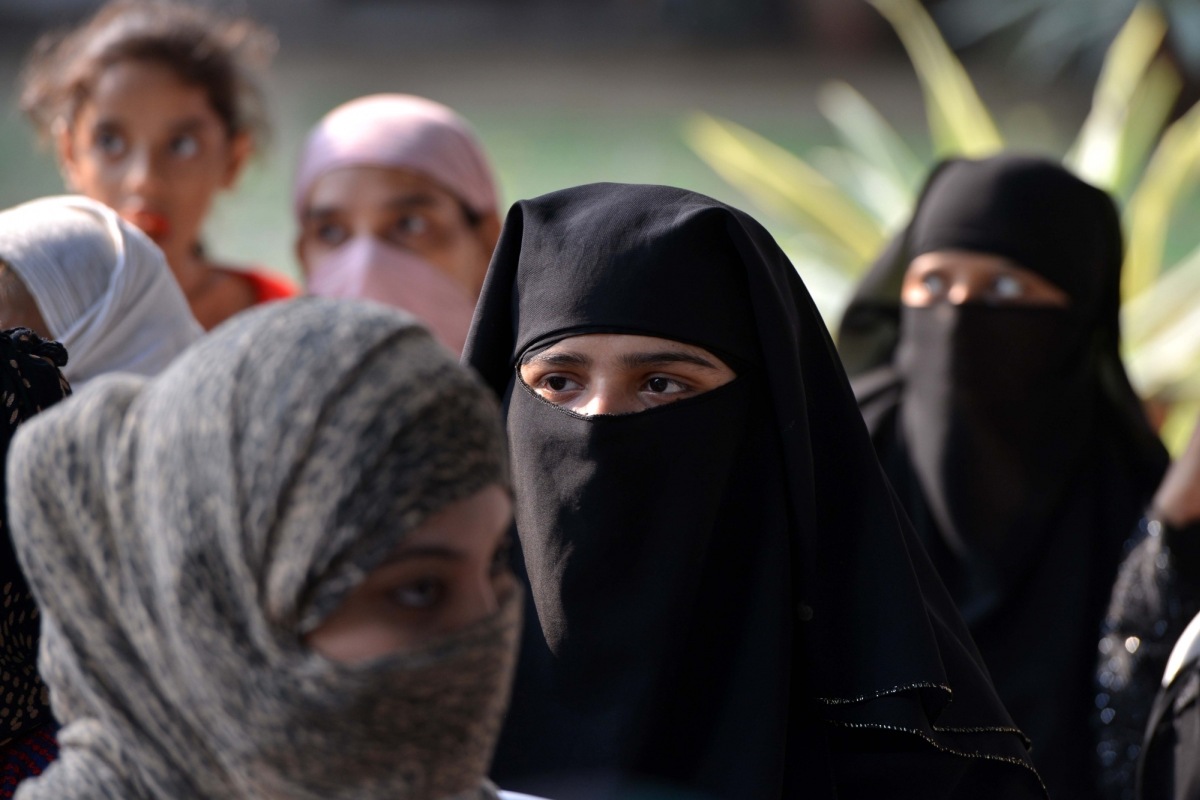Sri Lanka’s decision to ban the burqa and shut more than 1,000 Islamic schools or madrasahs in the country – announced by the Minister for Public Security Mr Sarath Weerasekera on Saturday – has expectedly caused a furore.
The minister told a Press conference that he had signed a paper on Friday for Cabinet approval to ban the full-face covering worn by some Muslim women on “national security” grounds. In his comments at the media briefing, Mr Weerasekera was unequivocal: “In our early days (as an independent nation), Muslim women and girls never wore the burqa. It is a sign of religious extremism that came about recently. We are definitely going to ban it.”
While it is true that Sri Lanka’s Muslim citizens, who comprise close to eight per cent of the population of 2.2 crore, have historically been moderate and integrationist, the Easter Sunday attacks by Islamic militants in 2019 which killed more than 250 innocents was seen as the first sign of the radicalisation of a significant section of the community.
Yet, the latest move by the government is tantamount to painting a target on the back of the entire community. That’s not only unhelpful but is also unlikely to be of much help in curbing terrorism.
Indeed, many analysts point out that such sweeping curbs on an expression of religious identity – whether it be through choice of attire or attendance of a particular type of educational institute – is likely to increase and not curb the growing radicalisation of the country’s Muslim community.
The fact that President Gotabaya Rajapaksa was elected to office on the platform of a crackdown on extremism is neither here nor there given the complex task of curbing Islamic radicalism is not susceptible to a solution being hammered out by imposing the kind of ban his minister has just announced.
Mr Weerasekera may assert that madrasahs in Sri Lanka are flouting the national education policy – “nobody can open a school and teach whatever they want to children” – and he may even be factually correct. But banning them outright, in conjunction with the proposed burqa ban, gets the tonality all wrong.
Supporters of the ruling regime argue that it was elected primarily by the Sinhala Buddhist majority to redress the perceived veto being exercised by minority communities on vital national issues including that of security but even electorally it is a fool’s game to try and consolidate the base as opposed to occupying the middle ground and winning over moderates from all communities to one’s banner.
Only the latter increases the social base of a party and that’s the whole idea in a democratic set-up. The temporary ban on wearing the burqa in Sri Lanka post the Easter Sunday attacks, it needs to be remembered, was lifted by the same government earlier this year after pressure from the USA and international rights groups. A walking back of Saturday’s announcement should not be ruled out.












